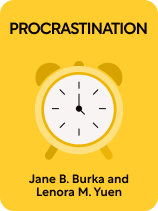

This article is an excerpt from the Shortform book guide to "Procrastination" by Jane B. Burka and Lenora M. Yuen. Shortform has the world's best summaries and analyses of books you should be reading.
Like this article? Sign up for a free trial here.
Do you tend to procrastinate on important projects, delaying them until the last minute? What are the dangers of chronic procrastination?
In the short term, procrastination wastes your time and gives you anxiety. In the long term, however, it has more overarching and deleterious effects, hurting your mental health and causing you to miss out on opportunities to progress in life.
Keep reading to learn about the negative effects of procrastination.
What Is Procrastination, and How Does It Harm Us?
Procrastination is postponing a task. There are positive, neutral, and negative forms of procrastination. It’s positive or neutral when you delay less-important tasks to attend to important ones. For example, it’s a good idea to procrastinate on mowing the lawn so you can visit an aging family member. Positive and neutral forms of procrastination have little to no long-term, negative consequences.
(Shortform note: Other experts on procrastination also argue that there are positive forms of procrastination. In A Mind for Numbers, Barbara Oakley adds that procrastination is positive when you intentionally delay a task to reflect on how best to begin it. For instance, you might intentionally procrastinate on starting a report by looking back at feedback on your previous reports and determining what writing skills you should focus on improving.)
By contrast, procrastination is negative when you delay tasks to the extent that you delay living a fulfilling, healthy life. There are several negative effects of procrastination:
First, it leads you to perform poorly on tasks. Procrastinators often save tasks for the last minute or miss deadlines altogether, leading to poor performance at work and school.
(Shortform note: Some people believe that when we procrastinate, we perform better on tasks because we’re under the pressure of an encroaching deadline. However, research confirms Burka and Yuen’s claim that people perform poorly on tasks they procrastinate on. For instance, one study shows that people who procrastinate work at a slower pace and make more mistakes on timed tasks compared to those who don’t procrastinate.)
Second, procrastination causes you to miss important opportunities. Procrastinators often delay life-improving decisions, such as switching to a better career.
(Shortform note: It seems counterintuitive to procrastinate on something that would improve your life. Procrastinators may postpone life-improving decisions because many life choices lack precise deadlines. For instance, there’s no specific age at which you must switch careers. Without the pressure of a looming deadline, it’s easier to procrastinate on such choices.)
Third, procrastination strains your relationships. When procrastinators delay chores, assignments, and decisions, they frustrate and disappoint their colleagues, friends, and family.
(Shortform note: Another way procrastinators negatively impact others is through secondhand procrastination: when your tendency to delay tasks creates more work for others. For example, if you procrastinate on contributing to a group task, your groupmates have to complete your portion of work. This may cause them to resent you and could jeopardize the task.)
Fourth, procrastination compromises your physical health. Procrastinators’ health suffers when they avoid exercise, fail to plan healthy meals, and postpone doctor visits.
(Shortform note: Arguably, one of the most harmful ways procrastinators compromise their health is by delaying their bedtime. This harms their well-being and reduces their sleep quality. Research suggests that there’s a link between smartphone usage and bedtime procrastination.)
Finally, procrastination hurts your self-esteem and mental health. Many procrastinators feel guilt and shame about their tendencies, which degrades their self-esteem and mental health.
(Shortform note: In The Now Habit, Neil Fiore claims that when we feel guilty and shameful about procrastinating on work, those feelings propel us into a cycle that only makes us procrastinate more. According to Fiore, this happens because there’s a societal belief that work is tedious yet virtuous. Our belief that it’s tedious makes us avoid it, then our belief that it’s virtuous makes us feel guilty and shameful for avoiding it. This guilt and shame lead us to procrastinate further.)
| How Perspectives on Procrastination Have Evolved Over Time Over time, perspectives on procrastination have shifted from associating it with laziness to seeing it as a strategy for handling emotions such as fear. Most of the earliest written uses of the word procrastination use it interchangeably with the word sloth: the sin of being lazy. Beginning in the early 20th century, writers for popular magazines began to discuss procrastination as a habit of being lazy that you can fix by exercising and by strengthening your productivity and time management skills. Today, many experts’ views on procrastination align with Burka and Yuen’s idea that it’s a strategy for handling emotions, rather than a result of laziness. While Burka and Yuen emphasize how procrastination helps you cope with fear, other experts emphasize how procrastination helps you cope with other emotions. For instance, Dan Ariely, author of Predictably Irrational, claims that we procrastinate when any heightened emotion (positive or negative) overrides our rational plans. For instance, someone who’s excited about impressing a crush may procrastinate on an assignment, even if they don’t fear that assignment. |

———End of Preview———
Like what you just read? Read the rest of the world's best book summary and analysis of Jane B. Burka and Lenora M. Yuen's "Procrastination" at Shortform.
Here's what you'll find in our full Procrastination summary:
- How to identify the fears that lead you to procrastinate
- How your biology, circumstances, and self-esteem affect your procrastination
- How to better control how you manage your emotions and time






